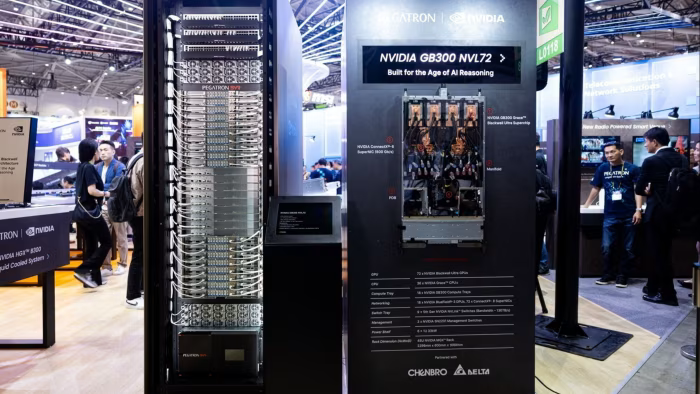Nvidia’s meteoric rise to a $3.3 trillion market valuation reflects its central role in the artificial intelligence (AI) revolution and growing expectations for long-term demand in data-intensive computing, the Financial Times reports.
At the heart of this optimism is a belief in the “tokenisation of everything” — a phrase that in AI terms refers to the explosion of discrete data units, or “tokens,” that advanced models process to generate results.
During the fiscal quarter ending in April, Nvidia reported $44 billion in revenue, up 69% year over year and exceeding Wall Street expectations. The company’s dominant position in high-performance AI chips — particularly its new Blackwell architecture — continues to make it the primary hardware provider for tech companies and governments building out AI infrastructure. Nvidia’s gross margin of 71% highlights its pricing power and ability to maintain profitability, even amid global trade challenges.
One of those challenges is the US export restrictions on high-end AI chips to China, which led Nvidia to write down $4.5 billion in inventory. The company estimates that China could have represented a $50 billion annual revenue opportunity. However, Nvidia managed to repurpose many of the affected components, softening the financial impact. Despite this setback, Nvidia raised its revenue guidance for the current quarter to $45 billion, up from analysts’ $43.5 billion estimate, even after accounting for $8 billion in expected lost sales due to the China restrictions.
The gap left by China is being filled by surging demand elsewhere. Tech giants like Alphabet and Oracle are investing in massive AI data centers, and countries such as Saudi Arabia, the United Arab Emirates, and Taiwan are pursuing large-scale, state-backed AI initiatives. Nvidia CEO Jensen Huang is also scheduled to visit Europe, a trip expected to coincide with further announcements related to AI partnerships or infrastructure expansion.
Driving much of the anticipated growth is the evolution of AI itself. As newer models perform more complex reasoning and validation, they require exponentially more data per query — sometimes up to 1,000 times more than earlier versions, according to Huang. This increased complexity translates into greater demand for the specialized chips Nvidia produces.
While competitors like AMD and Cerebras are investing in their own AI hardware solutions, Nvidia remains the market leader by a significant margin. AMD currently generates about one-sixth of Nvidia’s revenue, and Cerebras is still a smaller player, despite backing from Abu Dhabi.










The latest news in your social feeds
Subscribe to our social media platforms to stay tuned